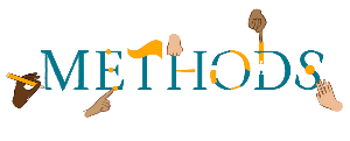
- This event has passed.
Challenging Research for sustainability: transdisciplinary methods, relationships, politics and praxis
As the ESRC STEPS Centre enters its final year, join us for the first in a series of virtual dialogues on methodologies, exploring the theme of ‘Challenging Research’ for sustainability.
Subscribe to our Events newsletter
In this first event on 17 February, we discuss the ideas and praxis involved in ‘opening up’ and ‘broadening out’ sustainability research.
What does it mean to ‘open up’ research to enable plural knowledges and views to be included and considered? Why and how do we ‘broaden out’ to reveal potential pathways of development that could support diverse emancipatory futures?
This event brings together sustainability researchers from the STEPS global consortium and beyond to discuss and compare their ideas and experiences. The panel will reflect on their diverse transdisciplinary journeys, and stimulate discussion about the kinds of methodological assemblages, frameworks, tools and associated ways of being that might enable us collectively to push our praxis towards transformation.
Video
speakers
Andy Stirling (STEPS/University of Sussex); Anabel Marin (IDS); Lakshmi Charli-Joseph and Patricia Pérez-Belmont (LANCIS-IE-UNAM/Umbela); Joel Onyango and Joanes Atela (ACTS/ARIN)
Andy Stirling is a co-director of the STEPS Centre and a professor in the Science Policy Research Unit at the University of Sussex, working on issues of power and uncertainty in research and innovation.
Anabel Marin recently joined the Institute of Development Studies (IDS) as leader of the Research Cluster on Business, Markets and the State, and is also director of Bioleft. Until January 2021, she was senior researcher in science, technology and innovation policies at the National Council for Scientific and Technical Research (CONICET) in Argentina and director of the Research Center for Transformation (CENIT).
Lakshmi Charli-Joseph works at the National Laboratory for Sustainability Sciences (LANCIS-IE-UNAM) in research projects related to stakeholders’ engagement, governance and transformations to sustainability in Mexico. She is part of the North America Hub of the PATHWAYS Network, where she co-coordinated the T-Labs project in Mexico. She is also an academic advisor of the NGO Umbela – Transformaciones Sostenibles.
Patricia Pérez-Belmont is director of the NGO Umbela – Transformaciones Sostenibles, an organization that seeks to foster transformations to sustainability through innovation, transdiscipline and capacity building. She is also a PhD candidate in the Sustainability Science program at UNAM. Her research focuses on the study of agrarian change in peri-urban contexts.
Joel Onyango is a fellow at the Africa Research & Impact Network (ARIN) and the focal point for ARIN-ASH Summer School. He is also a research fellow at the African Centre for Technology Studies (ACTS) with a focus on science technology and innovation; climate change adaptation and mitigation; water and food security, entrepreneurship and markets, and sustainable development.
Joanes Atela is the Convenor of the Africa Research and Impact Network (ARIN), a Senior Research Fellow and Head of Climate Resilient Economies Programme at the African Centre for Technology Studies (ACTS). He also coordinates the North-South research partnership for ACTS through the Africa Sustainability Hub, and as part of his passion to spur research excellence and intellectual leadership in Africa, Joanes founded the Africa Research and Impact Network (ARIN).
About the Challenging Research series
In a series of events entitled Challenging Research, we ask critical questions on the way we use and think about methodologies in sustainability research.
Faced with multiple intersecting crises and long-term social and ecological problems, sustainability research is called to challenge power, revealing alternative pathways to diverse futures. But it is hampered by hidden assumptions about objective knowledge, market forces and disciplinary silos, an artificial boundary between action and knowledge, and pressures for research to narrow down its questions and reach single answers or ‘solutions’.
The Challenging Research series critically examines the roles of methods and methodologies in addressing these problems, through a series of conversations between researchers and others mobilising for change around the world.
The series includes events convened by the ESRC STEPS Centre (co-hosted by IDS and SPRU, University of Sussex), ARIN (African Research and Impact Network), and events in Mexico coordinated by the NGO Umbela Transformaciones Sostenibles, co-coordinated by LANCIS-IE-UNAM, and in association with IIMAS-UNAM and the School of Sustainability at Arizona State University (these last three organisations comprise the North America Hub of the STEPS Global Consortium).
To be informed of future events, sign up to the STEPS events e-newsletter.
About Methods: OUR THEME FOR 2021
 Many methods offer ways to link knowledge and action for sustainability. But there are intense pressures to close down and narrow the way knowledge is produced and used for instrumental ends.
Many methods offer ways to link knowledge and action for sustainability. But there are intense pressures to close down and narrow the way knowledge is produced and used for instrumental ends.
What methodological assemblages, frameworks, tools and associated ways of being could help challenge these pressures, open up to more perspectives and participation in research, and allow us to pursue more plural pathways to sustainability?